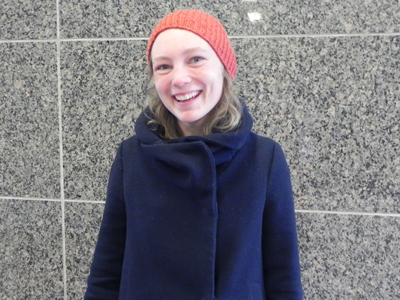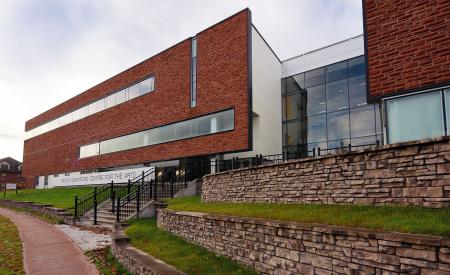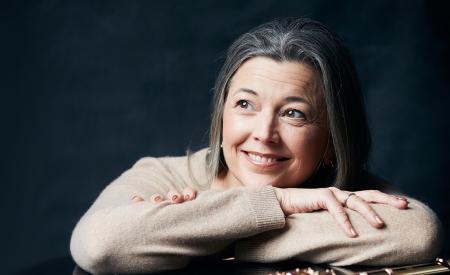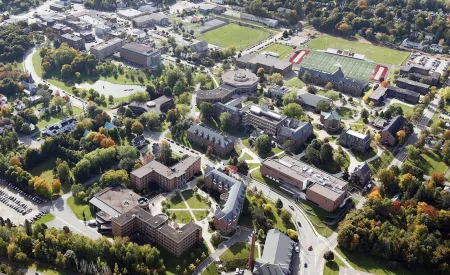International relations student studies Indigenous language education in Canada
 International relations student Lily Falk spent last semester doing a project on an area that she has been curious about since high school. She wrote an independent study on Indigenous language education in Canada through a political science lens.
International relations student Lily Falk spent last semester doing a project on an area that she has been curious about since high school. She wrote an independent study on Indigenous language education in Canada through a political science lens.
Political science professor Dr. Mario Levesque supervised Falk’s project.
“Dr. Levesque was such an incredible mentor and was so generous with his time,” says Falk.
Falk went to Pearson College in BC for high school and had friends from Ecuador and the Northwest Territories who spoke Indigenous languages.
“This topic has been in the back of my mind since I heard about the experiences of my friends who were so kind to share their stories with me.”
Falk, from Aurora, ON, reviewed Canadian policies over the last 150 years — looking at Indigenous education and Indigenous language education.
“Before I started this project I had no idea that we had over 60 Indigenous languages in Canada spoken today. However some of those have less than five native speakers. A language holds the way we understand the world, an attachment to our identity and to our land, a wealth of tradition, knowledge, spirituality that we are losing in Canada as a result of the residential school system by and large.”
Falk was looking for critical moments in the last 150 years where there have been major changes in policy and attitudes of the government towards Indigenous education and particularly Indigenous language education. She also looked at present day revitalization projects.
“These revitalization projects are coming from communities seeing their languages disappearing,” says Falk. “There is panic. ‘What are we going to do?’ Also the trauma from residential schools means there is often a tension between people valuing their languages and seeing how important they are, but also knowing that they, their parents, or their grandparents, were punished for speaking their language. There is the fear that if we teach our children to speak our languages are they going to be subjected to the same sort of abuse that we were. This was definitely present in a lot of the articles I was reading. People feeling this real tension.”
Dr. Levesque says, "It was a joy to work with a student that is so passionate about the subject.”
She prioritized Indigenous academics and voices when doing her literature review and reached out to Indigenous friends asking their opinion on her project and what she was reading.
“I tried to open myself up to different perspectives. I realize it is a journey I am on and I am not quite there. There is a lot of learning to be done,” she says.
Falk, who has an interest in radio journalism and co-runs a show at CHMA, will continue her journey this summer as she has received a summer research grant to visit different Indigenous language revitalization projects and report on these projects.
“I am excited that I get to combine two things that I am passionate about. I will get to hear from people who are doing such important work and have them tell their story in their own words.”




